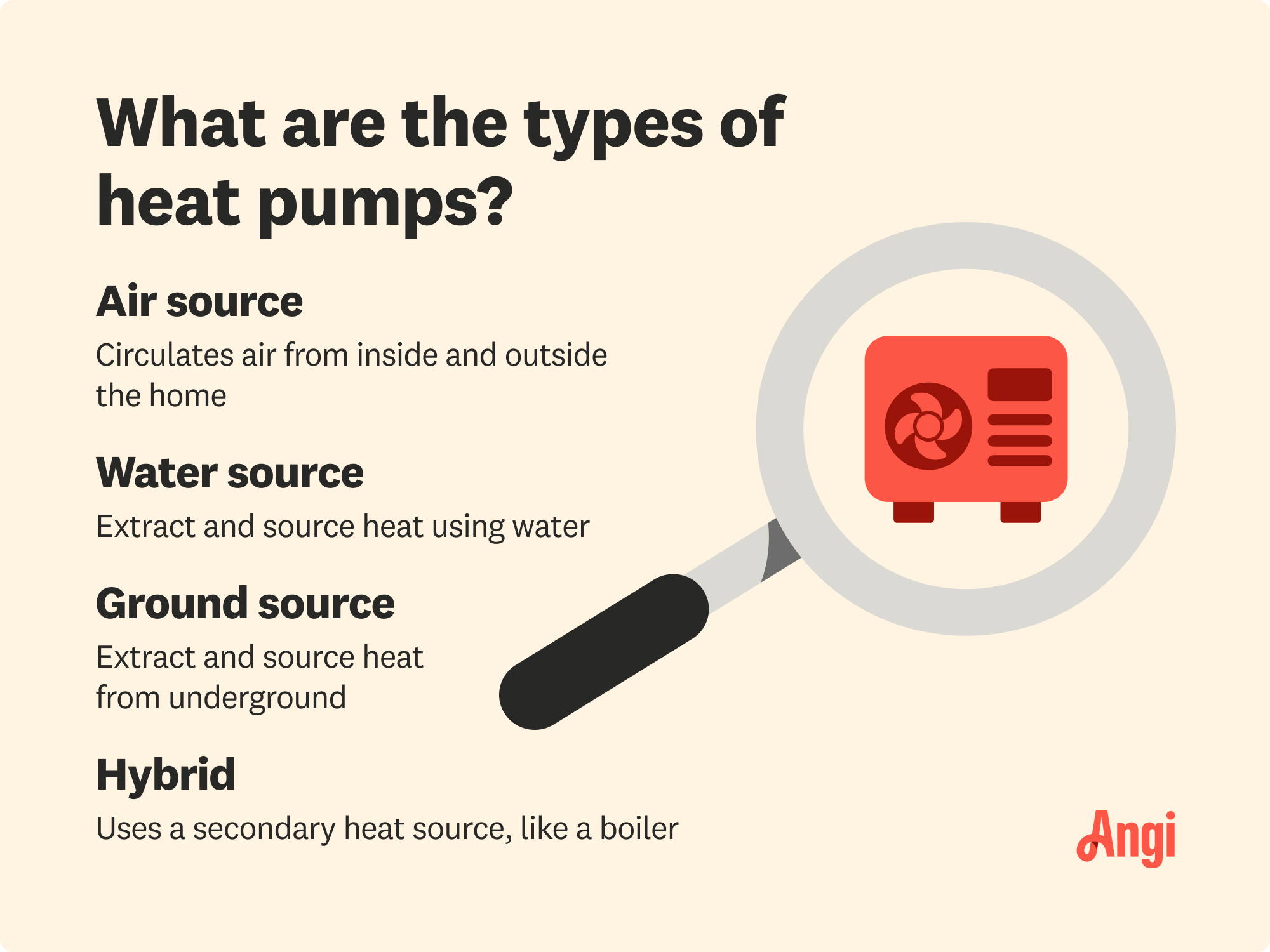
A blower door test can identify air leaks in your home and help boost energy efficiency. Use this blower door test cost guide to see what your test will total.
Efficiently heat and cool your home with this hybrid system


A hybrid heat pump is a dual-fuel heating system, using a gas furnace and an electric heat pump.
This type of heat pump is more energy efficient than other varieties of heat pumps.
Hybrid heat pump systems cost between $2,500 and $10,000.
Are you searching for a new, energy-efficient way to heat your home? A hybrid heat pump may be the system you need to keep warm on those cold winter nights.
This dual-fuel heating system utilizes a gas furnace with an electric heat pump to provide the most efficient way to heat your house. But what is a hybrid heat pump exactly, and how does it work? Learn how this system works, its pros and cons, and when to hire a heat pump installer.

A hybrid heat pump is a cooling and heating system that combines an electric heat pump with a traditional furnace that uses gas or propane as a fuel source. This type of heat pump automatically switches between using gas and electricity to heat your home, depending on which is the most efficient source for the current temperature.
The heat pump extracts air from the outside and warms it before transferring it indoors. When temperatures drop below freezing, the heat pump turns off, and the gas furnace kicks in to quickly and efficiently heat the residence. The heat pump can also provide electric cooling and uses a refrigeration cycle similar to a standard air conditioner.

The main difference between a standard and a hybrid heat pump is that a hybrid system has a secondary heat source, such as a gas furnace. The furnace can be fueled by natural gas or propane.
This feature allows the system to switch between the electric heat pump and the gas furnace to increase efficiency. Hybrid heat pumps are designed to provide optimal heating power and be as energy-efficient as possible.
Now that you know about hybrid heat pumps, you should know the pros and cons of this type of system to help you decide if it’s the right one for your home.
Let’s jump into the pros of this hybrid system.
Energy-Efficient: It’s no surprise that the biggest benefit of a hybrid heat pump is its ability to reduce overall energy consumption. That’s because it can switch to whichever fuel source is the most energy-efficient for the current conditions.
Provides consistent temperatures: This system can reduce cold and hot spots within rooms by maintaining consistent warmth throughout the entire home.
More sustainable: Since the system switches between electricity and gas and relies on renewable energy, it can reduce carbon emissions.
Here are the downsides to consider when deciding if a hybrid heat pump is suitable for your home
Higher installation cost: Installing a hybrid heat pump system is more costly than other types of heating systems. This system requires a heat pump and a furnace, doubling the installation labor and materials costs.
More maintenance: Since this system has two heat sources, it is twice as much work to maintain. You’ll spend more on annual inspections, maintenance, and repairs.
Adding a heat pump to an existing furnace ranges between $2,500 and $6,000, while a complete system can run between $4,500 to $10,000 or more. Contact a heat pump installation company near you to provide an accurate quote for a hybrid heating system placement based on your specific requirements.
Like any type of heating system, the price of a hybrid heat pump depends on several factors, such as your location, the brand, and labor costs. Another cost factor is if you are adding a hybrid heat pump to an existing furnace or installing an entire new system.
From average costs to expert advice, get all the answers you need to get your job done.

A blower door test can identify air leaks in your home and help boost energy efficiency. Use this blower door test cost guide to see what your test will total.

Discover the factors influencing air duct replacement costs in Atlanta, GA. Learn how to save money and make an informed decision for your home's comfort.

What you’ll pay in Atlanta, Georgia, for furnace repairs depends on many factors. Here’s a breakdown of what can go wrong and the cost to fix those issues.

Learn how to add Freon to your AC unit with our step-by-step guide, and keep your home cool with a properly functioning AC unit.

When you notice hot and cold zones in your home, it pays to learn how to balance airflow in your ducts to even out the temperature.

You’ll need to get creative if you want to run your portable AC in a windowless room. Here’s how to vent a portable air conditioner without a window.